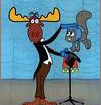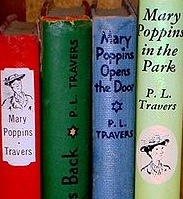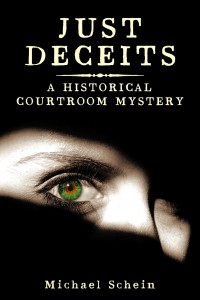I’m feeling a bit down today — I’ve just received word that an old acquaintance of mine committed suicide. The news comes courtesy of my alma mater. Ever-intent upon creating a far greater sense of community amongst its graduates than it ever was at promoting it amongst its undergraduates (at least while I was one of them), its staff tirelessly ferret out information about all of us and promulgate it ruthlessly, both on a bimonthly basis and in a peculiarly vicious form of sadism known as the reunion book, where poor, quivering souls are expected to account for the last five years of their terrestrial existence. Altogether, the university manages to give us all the impression that we’re all of such abiding eternal interest that we must all want to be kept updated on marriages, promotions, publications, and deaths in perpetuity.
Which means, in practice, that one seems always to be opening one’s junk mail and exclaiming, “Oh, I didn’t know he had died. I liked him.” The fine folks at the alumni office cheerfully informed me when they hit me up to give a eulogy earlier this year that the older one gets, the more often one should expect that to happen.
Good to know, I suppose.
Apart from the usual any man’s death diminishes me me malaise about someone I frankly hadn’t thought about in quite a number of years, Alex’s death had got me thinking about my membership in that other group that tends to exhibit an elevated suicide rate: artists in general and writers in particular. He, too, was a writer, and a good one. The sensitive nervous tissue I mentioned a few days ago, that stuff that allows us to perceive lovely ephemeral moments in life and capture them for all time, seems to have a harder time dealing with all of those slings and arrows outrageous fortune sees fit to fling at us all.
Or maybe we’re just better at composing last words than other people. In any case, one of the side effects of a lifetime spent interacting with the kind of fascinating, mercurial, observant souls who devote themselves to coughing up their visions of the world, often at great personal cost, for the delectation of others seems to be finding oneself saying on a fairly regular basis, “Oh, I’m so sorry to hear that! S/he was talented,” even without the intervention of a shared alumni publication.
It’s one of the costs of leading an interesting life. Don’t say I didn’t warn you.
There are even those who argue, and cogently, that the urge to produce art is in itself is essentially a self-defensive response to an unjust world. “To devote life to a constantly disappointed hope of happiness,” Mme. de Staël wrote, is to make it even sadder. It is better to direct one’s efforts to going down the road from youth to death with some degree of nobility, and with reputation.”
Amazing that someone who never had to query agents was able to come up with that, isn’t it?
Should you ever find yourself wondering why I put so much time and energy into this blog — over and above, of course, having a general fondness for advising people what to do that’s no doubt buried deep in my little Mediterranean lady genes, along with a pathological propensity for feeding bystanders until they burst — you need look no farther than my fellow writers who have fallen by the wayside. I’m not just talking about fine, creative souls like Alex, whose negative was so very final, but to all of the hundreds and thousands of genuinely talented people who have given up writing because the road to recognition is so very, very difficult.
It is thus with a sense of solemnity and a full appreciation of the irony of what I’m about to do that I return to our topic du jour: carving time and space out of a busy life for writing on a regular basis.
I’ve been dancing around this particular topic all autumn, ever since I took my October writing retreat. Back then, I asked you to start pondering a very serious question: what do you actually need in order to write happily and well?
Over the last couple of weeks, I have periodically reminded you of this request, urging you to give the matter a bit more strenuous thought. So if you weren’t expecting a pop quiz to turn up on the horizon, well, you obviously have never taken one of my classes.
Actually, it’s less of a pop quiz than the assignment of additional homework. Last time, if you will recall, I posed a number of questions that any writer serious about making a career of it is going to need to tackle sooner or later, preferably sooner. To recap for the benefit of those of you who missed them:
(1) What conditions would you actually need in order to write productively for a significant, unbroken chunk of time? What are your necessary minimum conditions — not just generic ones, but yours — for retreating to write, even just for a day?
(2) What specific factors — ambient noise conditions, lighting, seating, height of monitor, being able to lock a door, whatever — are of tangible assistance in your creative process, and what is merely nice?
(3) Is there anything that you currently use that you could do without? If you could snap your fingers and replace a neutral factor with a useful one, what would it be?
(4) Conversely, what conditions render the actual act of writing more difficult for you? Be as specific as you can, please: cold drafts blowing across your keyboard, telemarketers calling every fifteen minutes, a bookshelf that threatens to dump its contents onto your head as you attempt to type next to it, fear of rejection? Write ‘em all down.
(5) If you believe taking a writing retreat of any length to be impossible or well-nigh impossible for you, why? Again, the more specific you can make your reply, the better.
(6) What feels like support for your writing? What are others in your life already doing that’s helpful to your writing progress, and what seems like a stumbling-block?
Yes, these are indeed unusual questions to spring upon people at holiday time, when light, fluffy queries like Where can I find the best deal on cashmere socks?, If I add five pounds to the amount of weight I’m planning to lose after New Year’s, is it okay to eat this seventh cookie?, and, of course, Will Rudolph be able to save Santa’s delivery schedule? are ostensibly supposed to be occupying our minds.
However, as anyone who has been reading this blog for more than twelve months could undoubtedly tell you, I believe that the pervasive practice of writers torturing themselves through New Year’s resolutions demanding such unreasonable feats as finishing that long-delayed novel within the next month or landing an agent before Mardi Gras causes a whole lot of unnecessary misery, ultimately rendering the path to publication emotionally harder than it needs to be.
So there.
Call me zany, but in my experience, slow and steady tends to be a better long-term strategy for those seeing fame and fortune through writing than the occasional — or annual — two-week burst of effort, followed by a month of disappointment when those efforts do not yield results akin to Jack’s having planted those magical beans and awakened the next morning to find a beanstalk. Not to mention the months of disappointment with oneself for not having pulled a rabbit out of a hat yet again this year.
Allow me to suggest a much more sensible New Year’s resolution: this year, don’t make any New Year’s resolutions related to your writing at all.
Instead, why not figure out just a few small changes that would help you write more regularly? Or to rearrange your life in a small-but-significant respect to garner more emotional support for sending out a new query every time you find a rejection letter in your mailbox? Or to commit to removing a distraction that regularly comes between you and your genuine passion to write. Oh, if only you had a list handy of what does and doesn’t help you write…
Wait — what’s that you have clutched in your hot little hands, those of you who obediently donned your thinking caps when I requested it? And you thought you couldn’t pull a rabbit out of a hat.
Presto!
Because everyone’s list is bound to be different, I’m not going to presume to tell you how to prioritize the items on yours. At least not today. I’m going to leave you to ruminate on it a bit more, while we devote ourselves to applying the knowledge gleaned from that list to the long-delayed question of how to set up your own private writing retreat.
Yes, I am trying to clear out my to-write list before the end of the year! How did you guess? Since that’s such a big topic, I’m going to tackle the personal retreat next time.
I do have a little something up my sleeve, however, of a practical nature, to round out our time together today: remember in my last post, when I suggested asking your kith, kin, coworkers, canary, neighbors, and any stray children you may have happened to have taken in recently to cooperate with you in setting aside chunks of time sanctified for writing, agreeing not to bug you with anything less than an earthquake during these regularly-scheduled periods? Let’s give some thought today to how one might go about presenting that request in a manner that elicits neither thigh-slapping and guffaws, blank incredulity, nor doe-eyed moppets moaning, “Don’t you love me anymore, Mommy?”
For starters, I wouldn’t recommend just charging up to your nearest and dearest and accusing them, albeit nicely, of sabotaging your writing progress with their continual demands upon your time and attention. I can tell you from long experience observing and advising writers at various stages of their careers that however dramatically satisfying standing up at dinnertime and declaiming, “Support my writing or I’m leaving, Reginald!” may be in fantasy, it seldom yields positive results in practice.
Why, you ask? For the exceedingly simple reason that in all likelihood, Reginald probably no idea that he hasn’t been particularly supportive of your writing. He leaves you alone while he watches football in either the American or the international sense of the term, doesn’t he? Granted, you may not feel that bellowing at the television in the next room is particularly helpful to your artistic endeavors, nor is wandering into your writing space periodically to demand where his favorite pair of socks are, and sure, these orgies of spectatorship often take place during parts of the weekend when the kids want to be driven from activity — but for heaven’s sake, he’s trying, isn’t he?
Then, too, you may be so myopic that you can’t see that your mother’s nagging you to use your long-planned writing day to visit Grandma more often (because she’s not getting any younger, as opposed to the rest of us, but please don’t feel guilty) is her way of showing that she loves you, you sensitive so-and-so. Or that when you tell your best friend that you have rearranged your schedule so that you can spend Saturday mornings writing for several hours, that what she actually hears you say is, “I have some free time — let’s go to brunch!”
If you haven’t forced your nearest and dearest into a comfortable seated position recently and held them in place until you have explained that you regard such time as one of the greatest blessings of life, consider doing so, pronto. They may genuinely not understand why your writing time needs to be sacrosanct.
And why should they, really, unless they happen to be creative artists themselves? The fact is, dearly beloved, that to most non-writers, the idea of spending hours at a time sitting in front of a keyboard, composing a story from scratch where the grammar and spelling actually count, is not a particularly appetizing prospect. In interrupting your writing time, they may actually be trying to save you from what they perceive to be a grisly fate.
Don’t expect them to read your mind — or wait until you have been interrupted so many times that the only option left for expressing your desires on the subject is in a piercing scream. If you explain calmly and kindly why time and space are important to you, as well as how you would like them to act with respect to it, well-meaning souls will surprisingly often exclaim, “Oh, I had no idea! Of course I’ll leave you alone on Thursday afternoons from 4:45 to 6:15!”
Even better, they may actually do it. Naturally, like most New Year’s resolutions, their commitment to keeping out of your hair may falter over the course of a few weeks or months, but if you presented your case reasonably in the first place, you have laid the groundwork for a gentle reminder, haven’t you?
In order to encourage these sweet souls to make good on their promises, give ‘em a little practical help. Don’t answer the phone during your dedicated writing time, unless you are actually awaiting a heart transplant — and if you are, or if you’re not comfortable making yourself unavailable while your kids are in the house/out of the house/not yet old enough to vote, invest in caller ID or establish special ring tones so you know which calls are actually emergent and which merely Reginald eager to find out where you’ve hidden his favorite sweater after you washed it.
I’m quite serious about this. I know several successful authors who have gone so far as to get pagers and give the numbers only to their children, their elderly parents, and their agents.
Also, avoid the all-too-common trap of keeping your e-mail program or IM open while you are trying to write. They’re just too distracting — and as much as it may annoy your bored friends if you do not respond right away to visitors to your Facebook page, have you EVER received such a message that couldn’t actually have waited an hour or two for your response?
Speaking of distraction, some of you are still thinking about my crack about Reginald’s seeming inability to put away his own laundry, aren’t you? Your antennae are not steering you wrong, my friends: I am about to suggest that you sit down with the other members of your household to chat about how the domestic duties might be reapportioned to give you more writing time.
To put it another way, are the chores you do habitually are actually of such a nature that they can be done by your good self, or have you been doing them because, good heavens, if you don’t, who will? Or — brace yourself, neatniks — because you were brought up to believe that if laundry sits in a hamper longer than three days, it will transform into Godzilla and go rampaging through your house?
If you are the household doer-of-chores, expect some resistance to the suggestion that you are not equipped with an extra pair of hands specially designed for the purpose. As I mentioned last time, engrained habits are hard to dislodge.
Which is why I would not suggest walking into such a discussion unarmed: your argument will be more convincing if you are toting some proof that such chores are eating up quite a bit of your time. A great way to establish this is to take an average week and keep track of everything you spend more than ten consecutive minutes doing. Make your record as detailed as possible, then at the end of the week, tote up how much time you spent on each task.
If you’re like many conscientious chore-doers, you may be astonished at the totals. And if you’re like most time-fritterers, seeing how you’re spending your time may be equally enlightening.
Regardless of whether you will be confronting anyone but your pet cat or goldfish with the results (“I invested three hours playing with you last week, Fluffy! Your tyranny over my time must cease!”), keeping a meticulous record of how you spend your time for a week or two is a good idea. Be completely honest about it, so you may discern patterns.you can always destroy the document afterwards.
Yes, even if you’re embarrassed about some of the time-eaters you’ll need to list. After all, it won’t help you to pretend you spent six hours re-reading Marcel Proust’s À LA RECHERCHE DU TEMPS PERDU when you actually spent it watching reruns of Project Runway, will it? I offer no judgments — as a matter of fact, I’m rather fond of Project Runway — but presumably, if you felt you were already devoting enough time to writing, you wouldn’t be trying to find more.
Think of it as a time budget. If you know how and where are you currently spending your time, you will have an easier time figuring out what time expenses, so to speak, can be dropped. Or, to put it another way, would you prefer to invest your time elsewhere?
After you have a reasonably detailed account in your hands, try breaking your normal routine for a week or ten days, to get a clearer idea of what is and is not immutable in your usual schedule. This may require a bit of advance thought, but the results can be fabulously educational.
Switch around chores with your spouse; if you pick up the kids after school, try rearranging your carpool so you drive them there in the morning instead; it may well be that this will leave you fresher for evening writing. If you always do the dishes or laundry in the morning, do it late at night; maybe it will turn out that early morning is your prime writing time, and if so, do you really want to fill up that time with housework?
In short, just how much of that cast-in-stone schedule is actually cast in stone? What could go, at least in the short run, in order to free up more writing time
At the end of your week or ten days of messing with your schedule, after your routines are good and disrupted, look back over your account of how you spent your time. What worked and what didn’t? Where could you fit in chunks of solid writing time on a regular basis?
Could you use this information to rearrange your life so you could get more writing done? It may require some genuine bravery and ingenuity, but most of the time, the answer is a resounding YES.
Yes, it’s a lot of work, but changes implemented in this manner are far, far more likely to still be around six or even three months from now than if you pursue the infinitely more popular route of simply demanding more work from yourself while altering nothing else in your life.
Hey, there’s a reason that the average New Year’s resolution lasts only three weeks.
To minimize the resentment of the rest of your household, as well as to gain a more accurate sense of how you would use your untrammeled time, I advise going on a media fast for that week or ten days when you begin the new Schedule of Joy. It won’t hurt your worldview to turn off the TV and radio for that long, nor to skip the daily newspaper.
Not only will this allow you to assess just how much time every day you are currently spending being entertained and/or informed, to see if you could purloin some of that time for writing, but it will also help you get back into the habit of listening to your own thoughts without distraction.
I go on one of these fasts every year, and it honestly is amazing how much it calms the thoughts. It also arouses the pity and wonder of my household, and reminds my kith and kin just how important it is to me to have inviolate writing time. It reminds them that they, too, are contributing to my success, if only by remembering not to telephone during my writing time. It reminds them that they can actually LOOK for a stamp when they need it, rather than asking me.
Not to mention schooling the cats in who is actually in charge of when that furry mouse gets thrown for fetching purposes.
It also reminds everyone concerned why I am so strict throughout the rest of the year about not wanting to hear what is happening on the currently hot sitcom. For me, getting sucked into an ongoing plot line is a big dispensable time waster. I have seen a grand total of one episode of FRIENDS, two SEX AND THE CITYs, and no Seinfeld at all, but I have written several pretty good books.
I’m aware that the list above is woefully out of date, thanks, and I’m not sure that I could pick Jennifer Aniston out of a lineup. (She was on the first show I mentioned, right?)
Have I made my point?
Is getting a book project finished worth being temporarily out of touch with pop culture? Only you can answer that, but frankly, I doubt that even the most devoted television watchers will be clutching their throats like Vincent Price on their deathbeds, moaning ruefully, “Oh, if only I had kept up with my sitcoms better! If only I had followed reality television more faithfully, I would have no regrets departing this terrestrial sphere!”
And yes, in answer to what three-quarters of you just thought, I don’t believe that anyone Alex left behind wishes that he had spent more time watching television, either.
Which is why, in case you were wondering, that I’m not going to tell you how much time per day, week, month, or year is the idea amount for you to invest in your writing. How you choose to spend your time on earth — your leisure time, anyway — is up to you. If you want to set aside time to express yourself, be my guest; if you’d rather only work on your book sporadically, you have my blessing, too. Ditto with sending out your queries with the clockwork regularity necessary to land an agent vs. stuffing your manuscript pages into the bottom drawer, never to see the light of day. Whatever makes you happy, you should do.
All I’m asking — and I realize that it’s a big, big request, so feel free to say no — is that you make those choices consciously, rather than allowing yourself to be pushed around by the fact that a new year is going to begin in a few days or other people have not to date spontaneously offered to lighten your burdens so you may devote more time to writing. Creating a stellar piece of writing does not happen by accident; 99.9999% of the time, a glorious book is the result of quite a bit of advance planning and sacrifice.
Please do give some thought, in short, to the tender, loving care of your talent and all of that nervous tissue. To help you do so, I can do no better than to show you that Mme. de Staël quote in its entirety:
So let us rise up under the weight of existence. Let us not give our unjust enemies and ungrateful friends the triumph of having beaten down our intellectual faculties. They reduce people who would have been satisfied with affection to seeking glory; well, then, we have to achieve glory. These ambitious attempts may not remedy the sorrows of the soul, but they will bring honor to life. To devote life to a constantly disappointed hope of happiness is to make it even sadder. It is better to direct one’s efforts to going down the road from youth to death with some degree of nobility, and with reputation.
As John Irving urged us in THE HOTEL NEW HAMPSHIRE, keep passing those open windows, everyone. And as I have been known to advise a time or two here, keep up the good work!

































